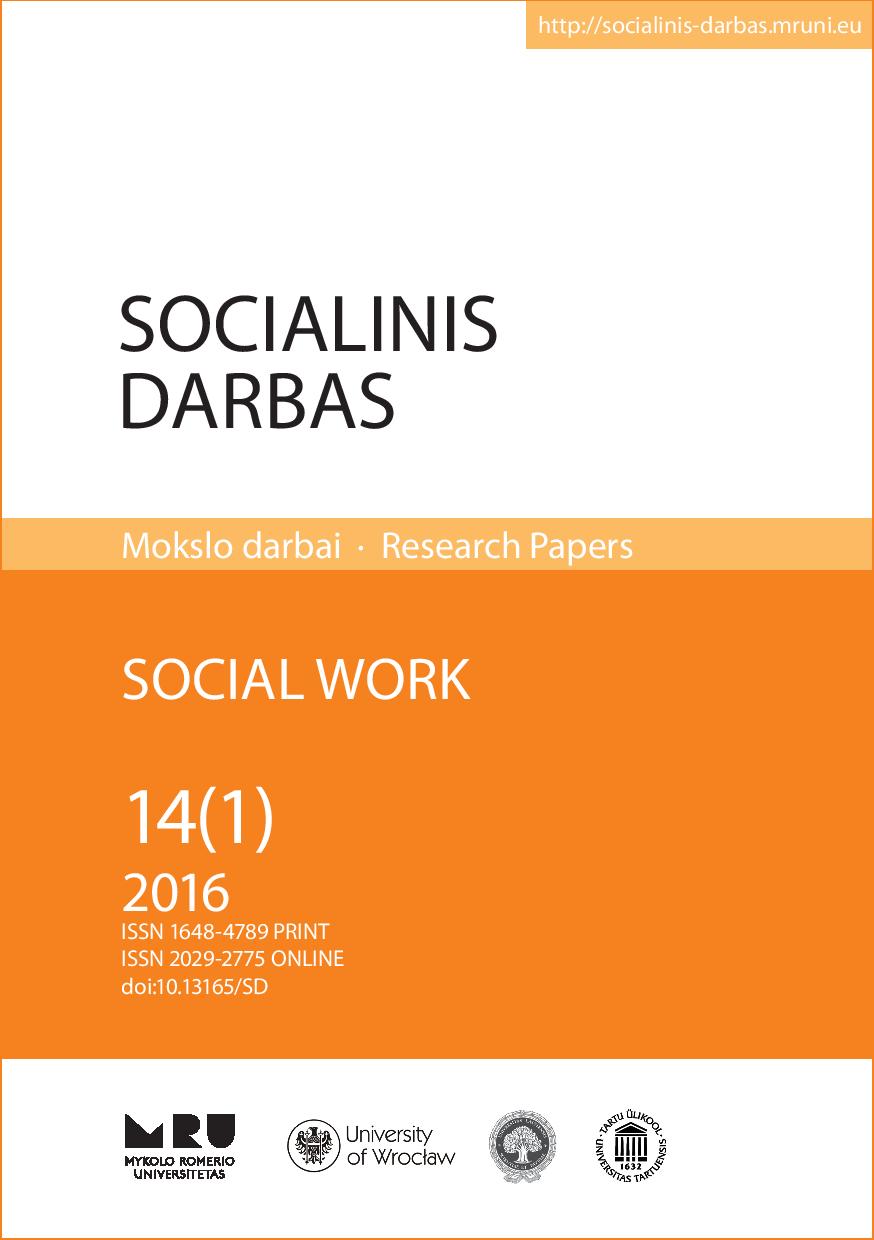POLITIKŲ POŽIŪRIS Į MOTERŲ SMURTĄ PRIEŠ VYRUS
POLITICIANS‘ATTITUDES TOWARD WOMEN VIOLENCE
AGAINST MEN
Author(s): Raminta Bardauskienė, Jolanta PivorienėSubject(s): Politics / Political Sciences, Politics, Social Sciences, Psychology, Civil Society, Sociology
Published by: Mykolas Romeris University
Keywords: violence; forms of violence; attitude toward men who suffered women violence
Summary/Abstract: Violence is one of the most complex psychosocial problems, especially if it is experienced from close person like spouse. This problem is not related to social status or other sociodemographic characteristics like ethnicity, religion, etc., it could occur in any place and under any circumstances. Domestic violence becomes one of the most relevant problems in a society, however, scientific research more often focuses on women who suffer from spouses violence and there is a lack of research about men who suffer from women violence. This article aims to fill this gap and to analyse some aspects of women violence against men.The goal of the article is to find out what are attitudes of Parliament members toward women violence against men. The quantitative research was conducted in order to answer three research questions: what actions of women can be understood as violence, what support men search after the violence, what is attitude to men who suffered women violence.Literature review revealed that violence against women and children are analysed more often, usually men are described as aggressive, dominant offenders. However, researchers in masculinity field state that men also could experience violence but they tend to hide the fact because they are ashamed, afraid of disapprobation of society, they don’t know whereto apply for support. Research data showed that respondents count violence such actions of women asoffensive remarks and jokes, shouting and scolding, pushing, damaging things, forcing for sexual intercourse, threatening to refuse to see their children, threatening to divorce.These are forms of psychological, physical and sexual violence. However, respondents don’t recognize such economic and psychological violence as prohibition to work or study,constantly expressed unfounded jealousy, ignorance and not speaking, obstruction to communicate with friends and reproaches.Most respondents stated that they would not apply for a support after experiencing violence from women, because they don’t see violent action of women as serious problem,they don’t think that it is violence. Respondents’ attitude toward men who suffered violence from women is controversial. On the one hand, they said that violence experienced men should search for a support, but they personally in case of women’s violence, are not going to ask for a help.Respondents are not minded to feel sorry for men who suffered violence from women,but they are not prone to stigmatize or blame such men as well. Research participants think that any men, not only weak ones, can suffer violence from women. Very small proportion of respondents said that their attitude toward mistreated men is negative.
Journal: Socialinis darbas
- Issue Year: 14/2016
- Issue No: 1
- Page Range: 40-52
- Page Count: 13
- Language: Lithuanian

